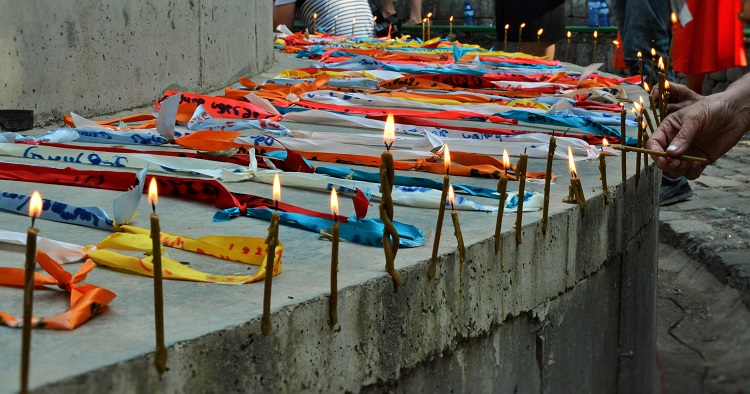Georgian, Abkhaz participants meet in Belgrade talks on persons missing from 1990s Abkhazia war

ICRC said the remains of 520 people had been found and exhumed since the establishment of the coordination mechanism in 2010. Photo: ICRC
A meeting between Georgian and Abkhaz participants was hosted on Tuesday in Belgrade to discuss ongoing efforts to account for 1,941 people missing from the 1992-1993 armed conflict in Georgia’s Russian-occupied Abkhazia region.
The International Committee of the Red Cross - which chairs the event as a neutral intermediary - said on Wednesday the discussion involved an update on the progress made in clarifying the whereabouts of the missing people, as well as efforts to search for information on possible burial places and ongoing challenges related to identification of bodies.
The participants agreed on “practical steps” to increase their efforts on the collection and exchange of information required for the process to continue at its “best possible pace”, ICRC said, adding the remains of 520 people had been found and exhumed since the establishment of the coordination mechanism in 2010 under its auspices.
It also noted 215 of the 520 individuals had been identified and handed over to their families “for a dignified burial”, and stressed the “strictly humanitarian dialogue” between the sides and their “continued joint engagement” within the mechanism remained “critical” to providing answers to the families of missing persons.
The conflict in the northwestern region began on August 14, 1992 and took the lives of between 13,000 to 20,000 ethnic Georgians and approximately 3,000 Abkhaz before it ended on September 27, 1993.
Over 250,000 Georgians fled the region and became internally displaced in the country, while more than 2,000 - including about 1,500 ethnic Georgians, up to 200 ethnic Abkhaz and about 100 ethnic Ossetians - were declared missing in the aftermath of the war.
 Tweet
Tweet  Share
Share